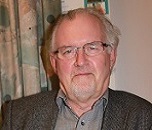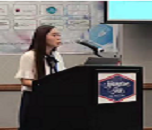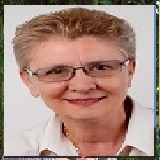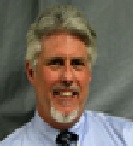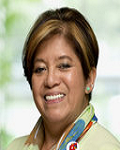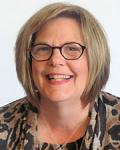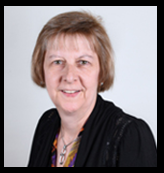Theme: Exploring the Current issues and Challenges in the path of Nursing Education and Primary Health Care
Nursing Education 2021
- Nursing Education and Primary Health Care
- Nursing Education 2021 Congress
- Sessions/Track
- Market Analysis
- VISA-TripAdvisor
November 29- November 30, 2021 | Vancouver, Canada
Nursing Education 2021 scientific committee feels esteemed delight to invite participants from around the world to join us at 28th International Congress on Nursing Education and Primary Health Care. Conference schedule to be held on November 29-30, 2021 in Vancouver, Canada. The Conference will primarily emphasize on the various topics related to Nursing Education, Health Care, Nursing Research, Critical Nursing, etc.
Details of Nursing Education 2021 Conferences in Vancouver, Canada
| Conference Name | Place | Date |
|---|---|---|
| Nursing Education 2021 | Vancouver, Canada | November 29-30, 2021 |
Nursing Education 2021 aims to discover advances in health practice, management, and education in relation to health disparities as well as a breadth of other topics through oral and poster presentations, educational workshop sessions, and influential plenary presentations. Attendees will be provided with the tools to enhance nursing education programs to make education more effective in nursing practice.
Nursing Education 2021 anticipates participants all around the globe with thought-provoking Keynote lectures, Oral, Young Researcher Forum and Poster presentations with Exhibition. The attending delegates include Editorial Board Members of related Journals.
It will offer a unique opportunity for investigators from all over the world to meet, network, and perceive new scientific interactions around the theme: "Exploring the Current issues and Challenges in the path of Nursing Education and Primary Health Care".
Nursing Education and Primary Health Care mainly focuses on the latest and exciting innovations in every area of Nursing Education and Research, Nursing Practice, Nurses and COVID-19 Pandemic, Nursing and Healthcare, Oncology Nursing, Pregnancy & Midwifery, Quality Care and Patient Care, Public Health Nursing, Cardiac Nursing, Adult Health Nursing, Community and Family Nursing, Forensic Nursing, Neuroscience Nursing, Dental Nursing, Nursing and Patient Safety, Clinical Nursing, Future of Nursing Education, Tele nursing and travel, Orthopaedic Nurse, Surgical Nursing, Geriatric Nursing, Nursing Informatics, Healthcare and Maternal Child Health, Critical Care Nursing, Neonatal Nursing, Psychiatric Nursing, Environmental Health Nursing, Women Health Nursing, etc.
Who can attend?
Nursing Education 2021 brings together individuals who have an interest in different fields of nursing like psychiatric, cancer, cardiac, critical care nursing, adult care nursing and women health, legal, pediatric and emergency nursing, midwifery, public health, healthcare and medicine from practice, research, administration, policy and education. It is a forum to explore issues of mutual concern as well as exchange knowledge, share evidence, ideas, and generate solutions.
- Nurses
- Health Care Professionals
- Professors, Researchers, Students and Technical Staff in the field of nursing
- Delegates from various industries
- Primary Healthcare Researchers
- Public Health Specialists
- Directors/Co-Directors of Research-based companies across Europe and the US who are investing in Health care and Nursing
- Nursing & Health Care Associations and Societies
- Business Entrepreneurs
Why to attend?
- Keynote Sessions
- Workshop & Symposia
- Networking & B2B (Business to Business Meeting)
- B2C (Business to Customers)
- Q&A sessions with the keynote speakers
- Best research & Poster Award
Benefits:
- Accepted abstracts will be published in “J” and provided with DOI.
- Global networking: In transferring and exchanging Ideas.
- Networking with experts in your field.
- Expert Forums.
- Career Development Sessions.
- Young Scientist awards.
- Best Poster Awards.
- Best Start-Up Awards.
- Preconference and Conference Workshops.
- Symposiums on Latest Research.
Track 1: Nursing Education and Research
Nursing Education which is provided to nursing students helps them in changing into well labile to their work by medical as well as nursing professional and to care of the patients. Nursing Education and Research are focused on the best prepare of nurses to meet health care needs of the society. Demographic, cultural, social and technological changes, as well as the continuous modifications in health services and health care organizations are a challenge for nurses, who have to provide advanced nursing practice and education. This education is furnished to Nursing college students with the aid of experienced nurses and different medical specialists who have qualified or experienced for instructional responsibilities.
- Nursing Ethics
- Nursing Management
- Nursing Leadership
Track 2: Nursing Practice
Nursing is a science, as well as a fine art of Care. It is a complex ever changing profession with ethics, standards, and prime practices to improve your quality of care. Nurses are trained to tailor their practices and give patients care that suits their comforts and needs. The nursing practice involves core involvements with research development, implementation and analysis. Improving patient safety by improving quality in nursing care is the main component of their practices with specialized knowledge, skill, and independent decision making.
The practice of nursing requires specialized knowledge, skills and independent decision making a nurse who works in a medical practice or surgery. Practice nursing they work in GP surgeries where they provide nursing care, healthcare, and health education to patients of all ages.
- Restorative practices modify the impact of illness and disease.
- Supportive practices are oriented toward modification of relationships or the environment to support health.
Track 3: Nurses and COVID-19 Pandemic
Nurses and midwives continue to be on the front line fighting COVID-19 daily and providing essential health services. This puts them at high risk of contracting communicable diseases including COVID-19.
Ever wondered what it feels like to be a nurse and midwife during the COVID-19 pandemic? Share your inspiring stories as health workers in Nursing Education 2021 Conference.
- Responsibilities of Nurses During COVID-19 Pandemic
- Role of Nurse in Prevention and Control of COVID-19 Pandemic
- Role of Nurse for Preparing the Pregnant Women with SARS Co-V2 Infection
- Role of Nurse for Preparing the Family with SARS Co-V2 Infection
- Role of Nurse as a Caregivers of COVID-19 Patients
Track 4: Nursing and Healthcare
Diagnosis, treatment and prevention of diseases, illness, injuries and various physical and mental ailments in humans constitute healthcare. It is an important sector in promoting general, physical, mental health and well-being of people around the world. Healthcare is initiated by providing the primary, secondary, and tertiary care for the public health. The healthcare sectors are dedicated in providing healthcare services and products through group of trained and experienced professionals from interdisciplinary teams.
Track 5: Oncology Nursing
Oncology nursing is probably one of the most challenging and rewarding in nursing field. This education should be done effectively throughout the treatment of the disease and take care of the patient, according to the teaching style that best suits the particular patient. The nurse are educate the patients on their condition and side effect and how to prevent complication. An oncology nurse is a nursing professional who specializes in caring and treatment for people with cancer. Oncology nurses must have appropriate training in the administration, handling, side effects, and dosing of chemotherapy. Each institution will have its own policies for various chemotherapy drugs to ensure adequate training and for prevention of errors. Their practices in the association will a number of oncologic disciplines, consisting of the surgical oncology, radiation oncology, gynecologic oncology and the medical oncology.
Track 6: Pregnancy & Midwifery
Midwives are well suited, trained health professional to provide prenatal care during labor and birth and care after birth. They have additional training and credentials for childbirth nursing education, breastfeeding consultation, and/or doula care. Midwives deliver babies at the hospitals or home depending on the customer’s expectation and severity of the pregnant women. Apart from providing care to women during pregnancy, birth, and postpartum period, they may also provide primary care related to reproductive health, including annual gynaecological tests, family planning, and menopausal care. They are specialists in pregnancy, childbirth, postpartum, and well-woman health care.
Track 7: Quality Care and Patient Care
Quality care: Now a days in rural areas most of the hospital managements are not responded properly to the patients, so that we need to improve the quality management system in the hospitals like quality of care and healthcare it means how the nurses are response on that time a doctor’s are beside manner, the atmosphere of the hospital it will be affect the people how they feel about the healthcare in the hospital.
Patient care: Patient care is very important via the treating the patient it will give the attention, time and to take care of them and well things to do. It will affect on their patient health and Patient-centered care is the practice of caring for patients (and their families) in ways that are meaningful and valuable to the individual patient. It includes listening to, informing and involving patients in their care.
Track 8: Public Health Nursing
While most nurses care for one patient at a time, public health nurses care for entire populations. By working with whole communities, public health nurses are able to educate people about health issues, improve community health and safety and increase access to care. Public health nurses believe a person’s health is affected by many factors, including genetic makeup, lifestyle and environment. Instead of waiting for patients to come to the hospital with an illness, they go into communities to try and help people improve their health and prevent disease. For people who don’t have access to care, public health nurses may also provide direct health care services, including preventive care, screening services and health education.
Track 9: Cardiac Nursing
Cardiac nursing is a work with patient those has suffer from the various condition of cardiovascular system. Most of the cardiovascular clinical nurse specialists work in the hospitals. They care for the critically ill patients, and those who are recovering from the cardiac procedures such as bypass, angioplasty/pacemaker surgery. Cardiac nurses help treat conditions such as cardiomyopathy, coronary artery disease, congestive heart failure, myocardial infarction and cardiac dysrhythmia under the direction of a cardiologist. The Cardiac nurses may also help the patients recover at home.
- Cardiac Anesthesiology
- Heart attack/Heart failure
- Cardiomyopathy
- Caring for heart transplant patients
- Health care for cardiovascular diseases
- Coronary artery disease
- Heart muscle disease (Cardiomyopathy)
Track 10: Adult Health Nursing
Adult health nurses are basically nurses who provide health care services to a specific population a typically young adults, adults, and older adults. The primary objectives of the adult health nurse are to play a role in, and to help facilitate, the promotion, maintenance, supervision, and restoration of the patient health. An adult health nurse, also known as an adult health practitioner, is often responsible for more things than an ordinary nurse. In many cases, adult health nurses will operate as leaders, advocates, and those working as a adult nurses also act as educators. In addition to taking vital signs and getting medical histories, and these nurses also order tests and laboratory work and keep doctors updated on patients health. These nurses can work with patients suffering from chronic conditions and those with new or recent illnesses, injuries and diseases of the patient health.
Track 11: Community and Family Nursing
Community health nurses, sometimes called public health nurses, are registered nurses who are trained to work in public health settings such as county or state health departments, schools, jails, and businesses. Community health nurses support the health and well-being of individuals, families, groups, communities, populations and systems. They practise in health centres, homes, schools and other community-based settings.
Community nurses act as:
- Educators
- disease and injury prevention specialists
- research scientists
- community advocates
Track 12: Forensic Nursing
Forensic nursing is defined as the application of the nursing process to public or legal proceedings, and the application of forensic health care in the scientific investigation of trauma and or death related to abuse, violence, criminal activity, liability, and accidents. Forensic nursing combines nursing practice and forensics in the scientific investigation of death and injury resulting from criminal activity and accidents. The specialized training that forensic nurses receive related to both the medical and legal needs of these patients drives demand for the specialty. Forensic nursing includes roles such as:
- Clinical forensic nurse
- Forensic nurse investigator
- Forensic nurse examiner
- Forensic correctional or institutional nurse
Track 13: Neuroscience Nursing:
A neuroscience nurse is a nursing professional that helps patients suffering from neurological problems. This can include injuries, such as head and spinal trauma from accidents, or illnesses, such as Parkinson’s disease, meningitis, epilepsy, and multiple sclerosis. Neurological nurses will often have a hand in treating patients with neurological problems as well.
- Brain tumors
- Parkinson
- Alzheimer’s
- Encephalitis
- CNS Disorder
Track 14: Dental Nursing:
Dental thought is essential to counteract dental illness and to stay up legitimate dental and oral well-being. A dental nurse is an essential part of the dental team, helping to ensure that the patient is well cared for ans as a dental nurse it is important to be friendly, calm and efficient and have a reassuring and welcoming manner. And the role of the dental assistants should support the dental operator by typically passing the instruments during the treatment. In a dental practice you will welcome patients and provide direct support with the treatment itself:
- taking responsibility for the decontamination of instruments
- maintaining dental operating equipment
- ensuring that all relevant materials and supplies are in place
- looking after patient records – including making notes when the dentist is examining a patient
Track 15: Nursing and Patient Safety:
The nurse-to-patient ratio is only one aspect of the relationship between nursing workload and patient safety. Overall nursing workload is likely linked to patient outcomes as well. As nursing care spans all areas of care delivery, nurses are well placed to prevent harm to patients and improve the quality and safety of healthcare delivered across all settings. Nurses are at the bedside, monitoring and caring for patients 24/7. As a nurse, you learn from an early stage in your career that patient safety is a nurse’s top priority.
Track 16: Clinical Nursing:
Clinical Nurse Specialists are registered nurses, who have graduate level nursing preparation at the master's or doctoral level as a CNS. Nursing and a clinical nurse specialist (CNS) is an advanced practice nurse who can provide expert advice related to specific conditions or treatment pathways. They are clinical experts in evidence-based nursing practice within a specialty area, treating and managing the health concerns of patients and populations.
Track 17: Future of Nursing Education:
Nursing is unique among the health care professions in the United States in that it has multiple educational pathways leading to an entry-level license to practice. Nursing students are able to pursue three different educational pathways to become registered nurses. Nursing research and education become more focused internationally to disseminate information and benefit from the multicultural experience. These various pathways provide numerous opportunities for women and men of modest means and diverse backgrounds to access careers. Changes in nurses' roles, responsibilities, and education are:
- Improving access to care
- Promoting nursing leadership
- Transforming nursing education
- Increasing diversity in nursing
Track 18: Tele nursing and travel:
Telenursing refers to the use of information technology in the provision of nursing services whenever physical distance exists between patient and nurse, or between any number of nurses. As a field, it is part of telemedicine, and has many points of contacts with other medical and non-medical applications, such as
- Telediagnosis
- Telemonitoring
Travel nurses are unique in that they are able to move from location to location based on their contract, and interact with patients from numerous locations. Travel nurses are able to broaden their experiences both professionally and personally through their journey.
Track 19: Orthopaedic Nurse:
Orthopaedic nurses focus on musculoskeletal issues and diseases that include fractured bones, arthritis, joint replacements and osteoporosis. Orthopaedic nurses are familiar with traction, casting, mobility devices, and pain management. Orthopaedic nurses work in hospital units, offices, and outpatient care clinics. They work with a wide age range of patients and care for both men and women. They can help care for physical issues, as well as intricate disease management.
Track 20: Surgical Nursing:
A surgical nurse, also referred to as a theatre nurse or scrub nurse, specializes in preoperative care, providing care to patients before, during and after surgery. There are many different phases during surgery where the theatre nurse is needed to support and assist the patient, surgeons, surgical technicians, nurse anesthetists and nurse practitioners. Surgical nurses may practice in different types of surgery:
- General surgery
- Vascular surgery
- Surgical Oncology
Track 21: Geriatric Nursing:
A geriatric nurse, or gerontological nurse, is a type of nurse that helps care for aging and elderly individuals. A Geriatric Nurse assists doctors in taking care of the mental and physical health of older patients who are at greater risk of injuries and diseases.
Establishing a patient care plan and setting health goals. Administering medications to patients based on a care plan.
Track 22: Nursing Informatics:
Nursing informatics is a career filed. Nursing informatics is a specialists facilitate data integration, information and knowledge so that they provide better support to patients, nurses and other health care providers. Nursing informatics is a field of nursing that include nursing, computer, and information sciences to maintain and develop medical data and systems to support the practice of nursing, and to improve patient care outcomes. There are a number of career options available in this lane, including the following:
- Nursing informatics specialist
- Clinical analyst
- Clinical informatics coordinator
- Nursing informatics analyst
Track 23: Healthcare and Maternal Child Health:
Maternal and child health specialists work to improve the health delivery system through advocacy, education and research. They accomplish this by discovering and testing solutions through applied research and by developing implementing and or evaluating health programs at the local, state, national and international levels. Their well-being determines the health of the next generation and can help predict future public health challenges for families, communities, and the health care system.
Track 24: Critical Care Nursing:
Critical care nurses require a specialized set of skills since they literally deal with life-and-death matters on a daily basis. They often work in hospital ICUs. Critical care nurses can be found working in a wide variety of environments and specialties.
- General intensive care units
- Medical intensive care units
- Surgical intensive care units
- Coronary care units
- Cardiothoracic intensive care units, burns unit
- Trauma center emergency departments.
Track 25: Neonatal Nursing:
Neonatal nursing is a nursing that works with new-born infants born with a variety of problems ranging from prematurity, birth defects, infection, cardiac malformations, and surgical problems. Neonatal nurses work in neonatal intensive care units, where new-born babies who are premature or ill can receive continuous care. A few neonatal nurses may care for infants up to about 2 years of age. Most neonatal nurses care for infants from the time of birth until they are discharged from the hospital.
Track 26: Psychiatric Nursing:
Psychiatric nurses assist to the patients who suffer with mental illnesses. They work in hospitals and in-patient care facilities to ensure that patients take their medications, stay safe from harm, and attend counselling sessions. They can also work with patients who have Alzheimer’s or dementia either through in-home care or skilled nursing facilities and provide medical care to patients who have mental health issues. Psychiatric nurses work in many environments. A few common ones are:
- Hospitals
- Psychiatric hospitals
- Home healthcare organizations
- Outpatient mental health organizations
Track 27: Environmental Health Nursing:
An environmental health nurse is a nursing professional who focuses on identifying different issues in the environment that can have an impact on the health and wellbeing of those in the area. Environmental health nurses work on improving the health of an entire population instead of on caring for a single patient at a time.
Track 28: Women Health Nursing:
A Women's Health Nurse Practitioner is an advanced-practice nurse who specializes in the comprehensive care of women throughout the lifespan with emphasis on conditions unique to women from menarche through the remainder of their life cycle.
Market growth of Nursing Research in the last and upcoming ten years:
The past three decades have witnessed a remarkable growth in nursing development. In both Korea and the United States, nurse scientists are poised to address important issues related to the prevention and management of significant health care problems. The need for greater nursing development in the areas of self-management, genetics, and geriatrics, health promotion across the lifespan, technology, and mental health are briefly highlighted. Future research efforts will be enhanced by interdisciplinary collaboration and the creation of international nursing research centers. At the same time, we need to remain cognizant of the importance of mentoring future Nursing 2021.
Industry Analysis & Industry Trends:
Over the five years to 2021, the industry is expected to continue expanding. Continued aging of the population, which is expected to accelerate over the five-year period, will drive industry growth.
Global Skilled Nursing Care Services Market, By Type of Connectivity-
- Connected to hospital
- Connected to assisted living community
- Connected to both hospital and assisted living community
- Freestanding
Major regions analysed under this research are:
- Europe
- North America
- Asia Pacific
- Rest of the World
- Australia
Non-Federal Research Associations and Foundations:
- Oncology Nursing Society Foundation
- American Nurses Foundation (ANF)
- National Institute of Nursing Research (NINR)
- Sigma Theta Tau International Honor Society of Nursing (STTI)
- Research Nurse
- nurse practitioner (NP)
- certified registered nurse anaesthetist (CRNA)
- clinical nurse specialist (CNS)
- certified nurse midwife
Market Report on Nursing Education and their top Companie's Growth:
The Nursing Education market report includes a comprehensive analysis of the competitive landscape of this vertical. The report provides an elaborate analysis of the competitive scope of this industry by segmenting the same into companies such as
- Duke University School of Nursing
- Yale School of Nursing
- School of Nursing, University of Washington
- School of Nursing, University of Michigan
- University of Edinburgh Nursing School
- School of Nursing Johns Hopkins University
- School of Nursing, Midwifery and Social Work at University of Manchester
- School of Nursing, University of Pennsylvania
- University of Toronto
- Karolinska Institute
- King's College London (KCL)
- University of Manchester
- Associations and Societies globally
- Canadian Nurses Association
- Indian Nursing Council
- Japanese Nursing Association
- Nursing Association of Nepal
- Nursing Council of New Zealand
- Nursing and Midwifery Council
- New Zealand Nurses Organization
Associations and Societies globally
- Canadian Nurses Association
- Indian Nursing Council
- Japanese Nursing Association
- Nursing Association of Nepal
- Nursing Council of New Zealand
- Nursing and Midwifery Council
- New Zealand Nurses Organization
- Philippine Nurses Association
- Philippine Nurses Association of United Kingdom
- Nursing & Midwifery Council United
- Sigma Theta Tau International Honor Society of Nursing
The health care industry is one of the world's largest and fastest-growing industries. The health care industry has several sectors that are dedicated to provide health care services to patient. A well-functioning health care system consists of a good financing mechanism, well-trained and adequately-paid workforce, reliable information upon which base decisions and policies are made, and well maintained facilities and logistics and to deliver quality medicines and technologies which are very much essential, according to the World Health Organization.
Planning a Trip to Vancouver, Canada!!! Attending Meeting!!!
An issue with VISA!!
Nursing Education Committee will be happy to help you in all regards to plan your trip to Vancouver, Canada. Avail the official invitation letter from us to attend this event ahead with a closer step for approval of your VISA.
Find out what you need to do to visit Canada as a tourist or business person, how to extend your stay in Canada and what documents you need to carry with you to transit through Canada.
Application submission:
Canada does not have a visa office in every country so it is important that Delegates/Attendees visit the website of the visa office responsible for processing their visa applications. Information is available on the website on how to submit a visa application and the documentation required.
Delegates/Attendees are encouraged to submit their visa applications well in advance of the date of the event at a Visa Application Centre or on-line E-applications (e-Apps).
E-Apps
This system allows clients to submit applications online.
Delegates/Attendees that need a visa but require their passport for other travel purposes are strongly encouraged to submit their visa applications online (e-Apps). Delegates/Attendees that choose to apply online will not have to submit their passport until a decision has been taken on their applications. If required, the visa office will send the applicant instructions on how and where to send their passports to finalize the visa process.
Visa Application Centres (VACs):
VACs are commercial service providers authorized by Canada to provide specific services to applicants.
VACs provide a number of services including help applicants fill out forms, answer questions and ensure that applications are complete, thereby reducing unnecessary delays or refusals due to incomplete applications.
Applicants that are required to provide biometrics information as part of the visa application process can do so at a VAC. Additional information on the biometrics requirements is available at the IRCC website.
VACs send applications to Visa Offices and transmit decisions to applicants in a secure and confidential manner. VACs do not process visa applications and play no role in the decision-making process.
Visa Applications Processing Time:
Processing time for visa applications vary depending on the office and the time of the year. Participants should be encouraged to apply early for their visas, and to submit complete applications including all supporting documents.
Please visit the IRCC website for information on the time it takes to process visa applications at the various visa offices.
NEW - Electronic Travel Authorization (eTA)
As of March 15, 2016, visa-exempt foreign nationals are expected to have an Electronic Travel Authorization (eTA) to fly to or transit through Canada. Exceptions include U.S. citizens and travelers with a valid Canadian visa. Canadian citizens, including dual citizens, and Canadian permanent residents are not eligible to apply for an eTA.
However, from March 15, 2016, until fall 2016, travellers who do not have an eTA can board their flight, as long as they have appropriate travel documents, such as a valid passport. During this time, border services officers can let travellers arriving without an eTA into the country, as long as they meet the other requirements to enter Canada. We invite you to consult the IRCC website regularly for information updates on eTA.
Best Tourist Destination: Vancouver
-
Stanley Park
-
Granville Island
-
Grouse Mountain
-
Museum of Anthropology
-
Kitsilano Beach
-
Gastown
-
Canada Place
-
Chinatown
-
English Bay
-
Capilano Suspension Bridge
-
Robson Street
-
Museum of Vancouver
-
Queen Elizabeth Park
-
Science World
- Richmond & Many more…
Conference Highlights
- Nursing Education and Research
- Nursing Practice
- Nurses and COVID-19 Pandemic
- Nursing and Healthcare
- Oncology Nursing
- Pregnancy & Midwifery
- Quality Care and Patient Care
- Public Health Nursing
- Cardiac Nursing
- Adult Health Nursing
- Community and Family Nursing
- Forensic Nursing
- Neuroscience Nursing
- Dental Nursing
- Nursing and Patient Safety
- Clinical Nursing
- Future of Nursing Education
- Tele nursing and travel
- Orthopaedic Nurse
- Surgical Nursing
- Geriatric Nursing
- Nursing Informatics
- Healthcare and Maternal Child Health
- Critical Care Nursing
- Neonatal Nursing
- Psychiatric Nursing
- Environmental Health Nursing
- Women Health Nursing
To share your views and research, please click here to register for the Conference.
To Collaborate Scientific Professionals around the World
| Conference Date | November 29-30, 2021 | ||
| Sponsors & Exhibitors |
|
||
| Speaker Opportunity Closed | |||
| Poster Opportunity Closed | Click Here to View | ||
Useful Links
Special Issues
All accepted abstracts will be published in respective Our International Journals.
- Journal of Nursing & Care
- Journal of Advanced Practices in Nursing
- Global Journal of Nursing & Forensic Studies
Abstracts will be provided with Digital Object Identifier by








